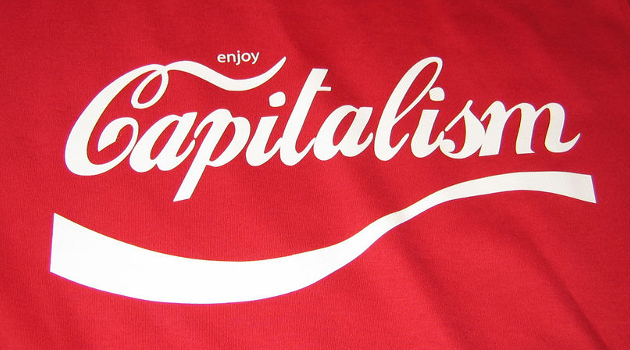For most of human history, we’ve had primitive and impoverished societies based on feudalism and tribalism.
The good news is that capitalism began to emerge a couple of hundred years. The parts of the world that adopted free enterprise became incredibly rich. And there even have been meaningful improvements in living standards in the parts of the world that only partly liberalized.
But not everyone likes economic freedom. They argue for alternatives to markets.
And they’ve put forth all sorts of ideas over the past 100-plus years. Some of them utterly reprehensible, such as communism and Nazism.
Others ideas have caused immense damage, such as socialism and fascism. And others such as corporatism and the welfare state, have undermined the benefits of free markets.
The bottom line is that none of those alternatives have worked. They’ve produced stagnation at best. And, in many cases, oppression and deprivation.
Yet our friends on the left haven’t given up. Like medieval monks searching for the Holy Grail, they desperately want to find something that can replace capitalism.
And some of those folks on the left are putting big money into the effort, as reported by Steve Lohr of the New York Times.
Wages have been stagnant for most Americans for decades. Inequality has increased sharply. …Those problems…are partly byproducts of…free markets, free trade and a hands-off role for government. Its most common label is neoliberalism. …The William and Flora Hewlett Foundation and Omidyar Network announced on Wednesday that they were committing more than $41 million to economic and policy research focused on alternatives. “Neoliberalism is dead, but we haven’t developed a replacement,” said Larry Kramer, president of the Hewlett Foundation. …The Ford Foundation and the Open Society Foundations have pledged to join the initiative and make grants later this year. …many prominent economists have questioned the wisdom of leaving so many human outcomes to the whims of markets. …“Reducing inequality has to be a goal of economic progress,” said Dani Rodrik, an economist at Harvard’s Kennedy School and a leader of its project on reimagining the economy. …Mike Kubzansky, chief executive of Omidyar Network, said today’s economic challenges spanned partisan divisions. “I think there’s pretty broad agreement that the traditional set of economic ideas has passed its sell-by date,” he said.
As a quick aside, when folks on the left use “neoliberal” as a slur, they are using the word to depict capitalism or libertarianism (the “neo” indicating today’s version of classical liberalism).
And I also can’t resist pointing out that Rodrik needs to learn about the “Eighth Theorem of Government.”
But let’s focus on the main issue. The Wall Street Journal editorialized on the left’s search for an alternative to free enterprise and pointed out that the real goal is to give Washington more power and control.
The 20th-century economist Joseph Schumpeter famously wrote that capitalism sows its own destruction by creating a knowledge class who despise its success. Behold the Hewlett Foundation and Omidyar Network’s $40 million gift to the paupers at Harvard and MIT to “reimagine capitalism.” …By “reimagining capitalism,” …what these foundations really mean is putting politicians and the administrative state in charge of redistributing more of its proceeds.
Amen.
One point I’ll add is that the left’s goal may be “redistributing more,” but an unavoidable economic consequence is that the economy doesn’t produce as much.
And that’s bad news over time, even for the people who are the supposed beneficiaries.
Which is why genuinely compassionate people support capitalism, which is the only system that has a proven track record of reducing poverty.
———
Image credit: Jacob Bøtter | CC BY 2.0.




